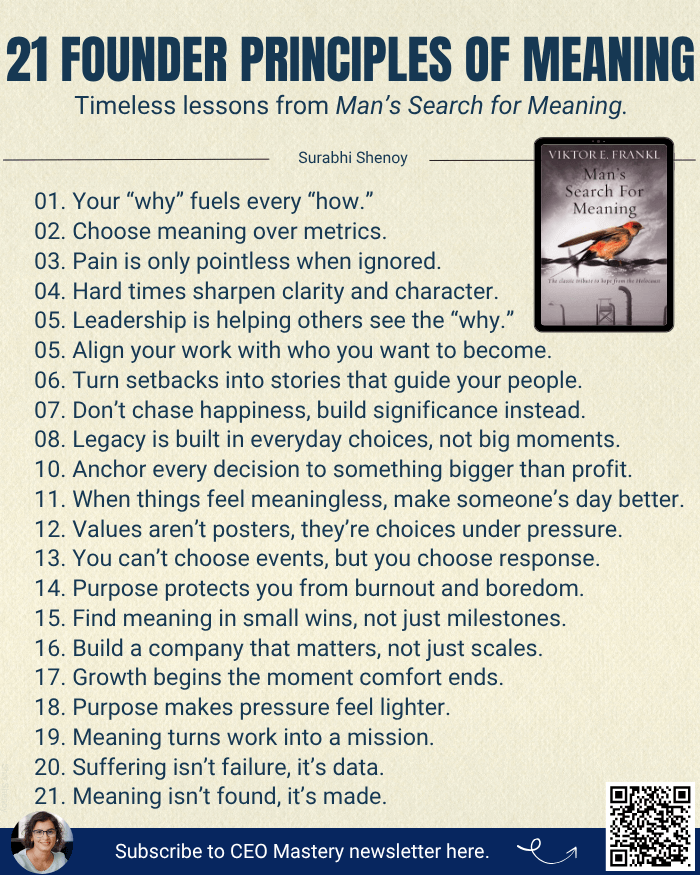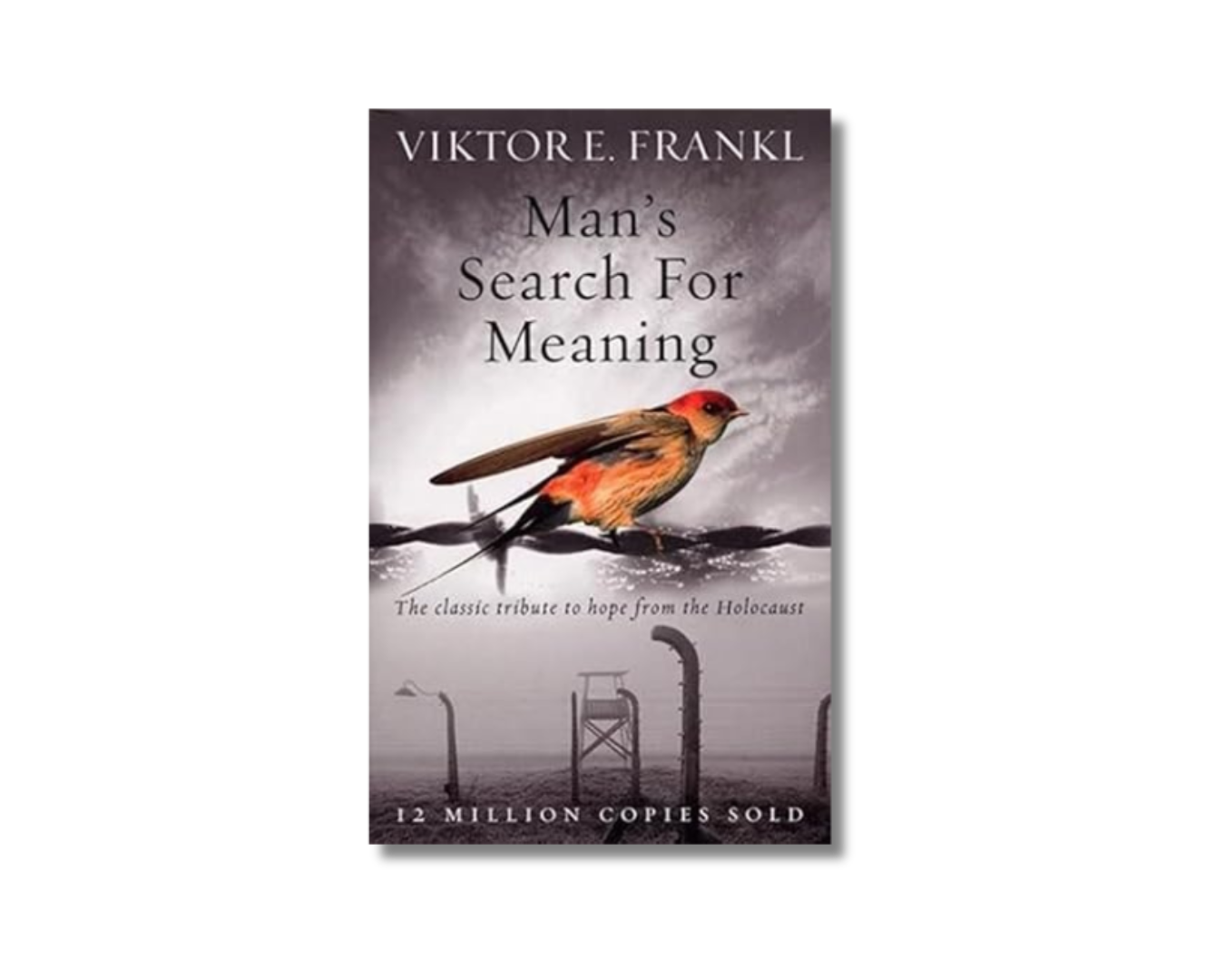Some books change how you think.
This one changes how you lead.
Viktor Frankl wrote Man’s Search for Meaning after surviving the Holocaust. But the lessons go far beyond history. At its heart, the book is about choice. The power to decide how you act, where you go, and what you build, even when life feels out of control.
That’s the same reality founders face.
You can’t control the market.
You can’t control who leaves the team.
But you can control what those moments mean, and how you respond.
Frankl’s central idea is deceptively simple: meaning is not something we discover, it’s something we create. And that shift is what separates founders who merely survive the chaos from those who build something enduring through it.
The Power of the “Response Gap”
Frankl famously wrote, “Between stimulus and response there is a space. In that space is our power to choose our response.”
That space is where leadership lives.
In business, you’ll be hit with bad news, such as, a deal falling apart, a critical employee quitting, a product failing in the market. Most people react. Founders can’t afford that luxury.
Great founders pause before they act. They use that small gap to think. They don’t just react, they choose a response that fits their bigger goal. This discipline — choosing the response, not reacting to the stimulus — is the first muscle every leader needs to build.
Meaning Outlasts Motivation
Motivation is volatile. It spikes after funding rounds, customer wins, or media mentions. And it dips just as quickly when challenges hit. Meaning is steadier.
Frankl’s work reminds us that people will endure almost any “how” if they have a clear “why.” As a founder, that applies to you and to the people you lead. When you connect daily work to a bigger purpose — the people you help, the change you create — the hard days start to matter.
It’s not about grand mission statements. It’s about creating a clear line of sight between the work and the impact. That’s how you sustain yourself and inspire resilience in your team when the initial excitement fades.
Tragic Optimism: Leading Through Hard Seasons
Frankl also introduces a powerful idea: tragic optimism. The belief that suffering, while painful, can be turned into growth, purpose, and transformation.
Founders know this intimately. The hardest phases of a business.. layoffs, failed pivots, brutal market conditions, often become the turning points that strengthen culture and clarify strategy. But that only happens if you frame them that way.
Tragic optimism isn’t about loving pain.
It means asking, “What can I learn here?” instead of, “Why is this happening?” That subtle shift changes how you lead. It turns setbacks into systems, crises into culture, and mistakes into momentum.
Responsibility Over Control
Frankl argues that real freedom is incomplete without responsibility.
In business, that translates into one of the most underrated leadership skills: owning what you can control and letting go of what you can’t.
Founders waste immense energy trying to control markets, investors, and outcomes. The most effective ones redirect that energy into responsibility —for decisions, communication, follow-through, and culture. Responsibility creates trust, and trust is the foundation of sustainable growth.
Rebuilding Meaning in Burnout
Every founder hits a point where the vision feels distant and the pressure relentless. Burnout isn’t only about being tired, it’s about losing touch with meaning.
Frankl’s framework offers a way back: start small.
Reconnect with work that matters, relationships that energize you, and the stance you want to take in hard times. These three elements (work, love, and attitude) are the pillars of what he calls logotherapy for leaders. They are often the fastest way to find purpose again when your drive feels low.

A Playbook for Founder Leadership
Man’s Search for Meaning, for founders, isn’t about philosophy… it’s about practice.
It’s about pausing before you react and choosing with intention.
It’s about anchoring decisions to purpose instead of pressure.
It’s about seeing pain as data, not destiny.
And it’s about leading not from control, but from responsibility.
Most of all, it’s about building a company, and a life, that matters.
In the end, investors forget numbers. Markets forget news. But the meaning you build? That stays.

